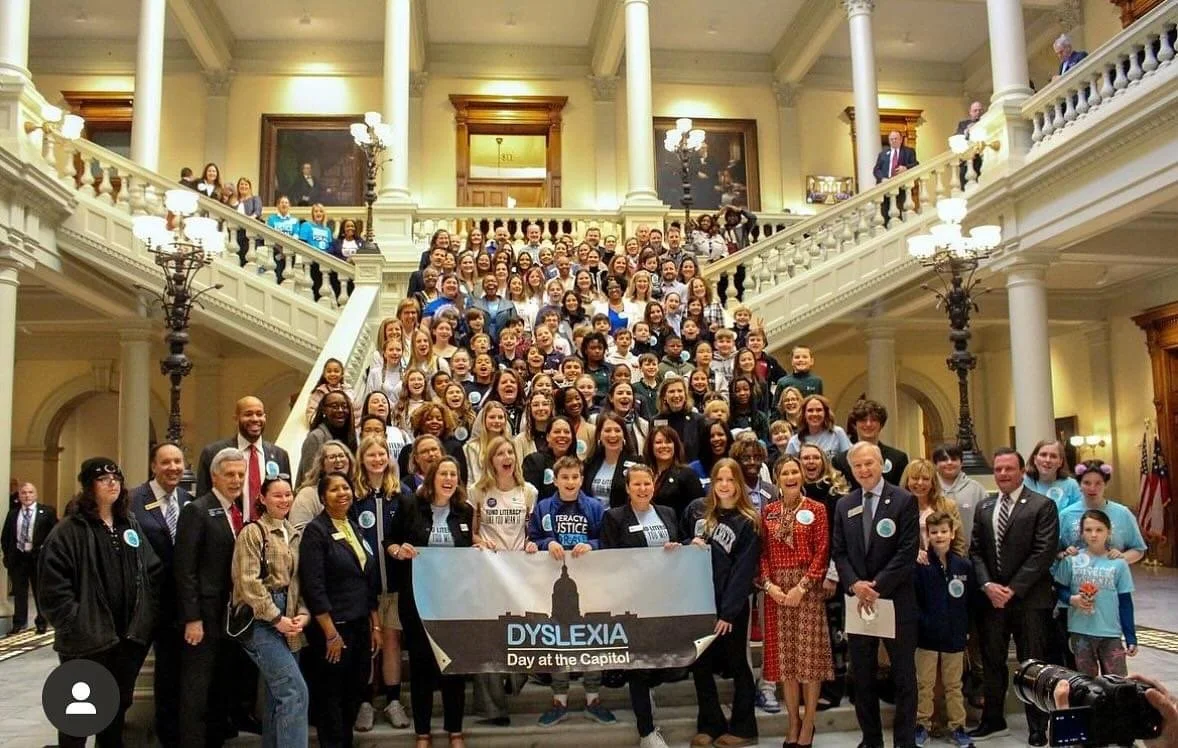
About:
Hi, I’m Meagan Swingle, a literacy advocate and consultant from Decatur, Georgia, working to impact systemic change, from local schools in my community to the state and national level. Through my communications business, Little Light Group and my literacy work at UntilAllCanRead.org, I help create collaborative networks of parents, teachers, administrators, policy makers and community leaders, working together towards a common goal of driving transformational change and giving every student an equal opportunity to read, write and thrive.
I began UntilAllCanRead.org in 2018 as a resource library to help educate and empower parents, caregivers, educators and anyone else starting out on their own advocacy journeys. As my knowledge has grown, I’ve helped represent families in need of pro bono advocacy support. Trinity, Elijah, Aaron, Jakari, Juan-Karlo… These are just a few of the students who I’ve had the honor of fighting for through my advocacy.
In addition to family advocacy, I also consult with organizations that want to drive meaningful systemic change and who believe, like I do, that learning to read is a fundamental and essential human right. The illiteracy crisis in America, and widespread low literacy, have profoundly devastating consequences. Illiteracy and low literacy contribute to generational poverty, fuel pandemics of anxiety and depression, and tragically feed into the school-to-prison pipeline, especially for those in historically marginalized communities who already face systemic inequities.
Through our collective advocacy, we can make a real difference and change the trajectory of lives. Learn more about how to work with us below.
Our approach:
Partnering with UntilAllCanRead.org means more than just launching a community literacy program; it means becoming a catalyst for driving systemic change. We understand that creating lasting change requires a collaborative and comprehensive strategy. That's why we work closely with organizations like yours to:
Assess Community Needs: We help identify the unique literacy challenges and opportunities within your community, ensuring that your community impact programs are tailored to help create real systemic change benefiting those most in need. This isn't just about programs; it's about people and purpose. Our aim is to ensure that the literacy initiatives we develop together resonate deeply with your corporate identity and objectives.
Design & Implement Tailored Programs: We have the knowledge, contacts and resources to support your organization in creating a truly impactful program that makes a real difference in the lives of the members of your community. Knowledge is power, and understanding the "why" fuels lasting commitment. We conduct an impactful educational session for your company team members. This session goes beyond statistics, vividly illustrating the profound stakes of the literacy crisis. We'll explore its far-reaching consequences, from perpetuating generational poverty and escalating high school dropout rates to contributing to mental health challenges like anxiety and depression, and its undeniable link to the school-to-prison pipeline. Our goal is to foster a shared understanding of the urgent need and inspire your team's passionate involvement.
Build Capacity & Sustainability: Our goal is to empower your team with the knowledge and tools to manage and sustain these vital programs long-term, creating a legacy of being a champion for literacy.
The Devastating Consequences of Low Literacy
Students who do not read proficiently by the end of third grade are four times more likely to drop out of high school than proficient readers. (The Annie E. Casey Foundation)
High school dropouts are 3.5 times more likely to be arrested in their lifetime than high school graduates. The link between academic failure (especially reading failure) and delinquency, violence, and crime is profound, disproportionately affecting historically marginalized communities due to systemic inequities and lack of resources. (Literacy Mid-South)
85% of all juveniles who interact with the juvenile court system are functionally illiterate. (US Justice Department)
Individuals with lower literacy skills report significantly greater mental health difficulties, including higher rates of anxiety and depression. (Frontiers in Psychiatry)
The school-to-prison pipeline disproportionately impacts "racial minorities and children with disabilities" through disciplinary policies. (Learning for Justice: the Southern Poverty Law Center).
Estimates suggest that 70% to 75% of adult inmates in America's prisons cannot read above a fourth-grade level, or are functionally illiterate. (OYCR)
Children of parents with low literacy skills are 72% more likely to be at the lowest levels of literacy as adults, perpetuating a cycle of poverty across generations. (Barbara Bush Foundation for Family Literacy)

With Georgia Governor Brian Kemp as he signs House Bill 307 banning three cueing programs and methodology in Georgia.
With FULCRUM (Full and Complete Reading is a Universal Mandate) founder Kareem Weaver at the Morehouse Human Rights Film Festival screening of The Right to Read
Dyslexia Day 2024 at the Georgia capitol with Georgia Literacy Council Chair Scott Johnsons, senator Bill Hickman, senator Elaine Parent, senator Chris Erwin, Senator Clint Dixon, Rep. Bethany Ballard, and hundreds of Georgia parents and students gathered to #SayDyslexia.
In the office of Georgia Governor Brian Kemp as he honors advocates for our efforts and work towards one day achieving #LiteracyandJusticeforAll.





